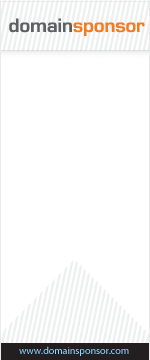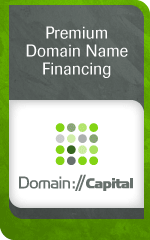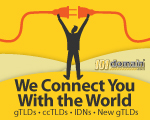|
|
|
Our
2016 Panel of Experts |
|

|

|

|

|
|

|

|

|

|
|
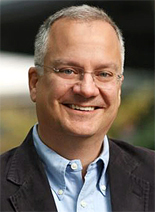
|

|
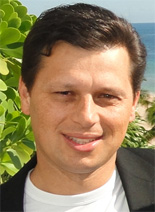
|

|
|

|
Row
1: (L to R): George
Hong (Guta.com), Tessa Holcomb (Igloo.com), Alan
Dunn (NameCorp.com), Tracy Fogarty (eNaming.com).
Row 2: (L to R):
Tobias Flaitz
(Sedo.com), Paul
Nicks (GoDaddy.com), Mike Mann (DomainMarket.com),
Michael Castello (CCIN.com).
Row
3: (L to R): Paul
Stahura (Donuts Inc.), Lori Anne Wardi (Neustar),
David Warmuz (Trellian/Above.com), Ash Rahimi (RookMedia).
Row
4: Deepak Daftari (eSiksha.com). |
Domain Investors
Since China
came up over and over again in our conversations we will start
with commentary from several experts whose primary business is aftermarket
domain sales - a sector that was turned upside down - in a
good way - by Chinese buyers. We talked some of the leading
buyers, sellers and brokers in the business to help make
sense of it all. We'll start with comments from Philadelphia based
broker George Hong, a native of China, whose familiarity
with key players on both sides of the Pacific have put him right
in the middle of this extraordinary boom. George's business grew
so much in 2015 that he just opened a new office in Xiamen,
China to complement his Stateside operations.
George
Hong
President & CEO, Guta.com
|

George
Hong
President & CEO, Guta.com |
In
general, 2015 was a terrific year that was filled
with action for the domain industry and Guta. Due to strong
demands from Chinese buyers, the value of short domains,
such as 2-4 letter, 2-5 number .com, .cn,
.cc and a few other extensions, went up sharply.
Some name types doubled or tripled in value, while others
went up at least 10 times in value in 2015.
Here
are some of the reasons why the demand for domain names were
higher than ever before:
1.
The Chinese government encouraged people to start up
companies
2.
On July 4th, China unveiled its “Internet Plus” action
plan, aiming to integrate the Internet with
traditional industries, and fuel economic growth. Internet
Plus startups need domain names.
3.
It is easier than ever before to invest in certain types of
domain names, which helps attract new investors.
|
4.
There are a lot of domain financing companies empowering
domain investors to buy more names than they could afford if full
cash payment was required up front.
In
2015, Guta brokered five 7-figure USD transactions (4 of
the 5 were multi-million dollar sales). The prices of our top
four individual domain sales are confidential, but if they were
publicly reported, they would rank as the 3rd, 4th, 5th and 6th
highest domain name sales of 2015, according to the the final 2015
Top 100 Domain Sales Chart published by DNJournal.
As we all know that Beijing is the capital city of China
and I was extremely proud to broker the sale of Beijing.com
between Godaddy and a Chinese buyer. Another transaction
that meant a lot to me was the sale of 989.com for $818,181.81
- a sale we handled as the seller’s broker for Rick Schwartz.
Trading
in premium domains was not the only way investors made money in
2015. My friend and client, Mr. Xie Yipeng made a
nice profit by buying
and flipping PPP.com but he made way more money bulk
registering and selling 6-number .com domains. In the 2
day span of September 12-13, 2015, he registered 33,000 6-number
.com domains. On November 1st, Mr Xie claimed that he sold most of
his 6 number.com and made a profit of CNY 17 Million (more
than $2.5 million USD) in the process. Inspired by his
success, a lot of domain investors started bulk registering
new domains in all extensions.
|
In 2015, for many investors,
Domain Investment turned from a part time hobby to a hot
and trendy occupation. The domain business became a
viable, serious and noble business. The image
of domain investors positively improved. The red-hot
domain market has drawn the attention of both newcomers
and legendary investors (some of whom had retired or
semi retired for a few years before the current boom
brought them back).
Looking ahead to 2016, there
are several things to consider:
|

George
Hong in his new Xiamen, China office. |
-
There
will be more collaboration among domain companies. In
2015, Guta worked closely with multiple brokers to sell
several domain names (two of these names were sold for
multiple millions each). We hope we can co-broker more domains
with other brokers. If you are a broker and have good names
for the Chinese market, please talk to us.
-
The
Chinese market will become an important market for many more
domain companies. Guta’s focus in 2016 is still to help
western country domain owners/brokers sell domains to
Chinese buyers. To be closer to our buyers and to prepare for
the stronger demands from the Chinese market, we set up an
office in Xiamen in December 2015 and have begun expanding
our team to better serve our clients. In 2015, I took four
trips to China and spent more than 80 days there. In 2016, I
plan to stay there longer than I did in 2015.
Tessa
Holcomb
Co-Founder & CEO, Igloo.com
Tessa
Holcomb, who
was profiled in our June
2015 Cover Story, is another accomplished, veteran
domain broker who is no stranger to seven-figure transactions. As
one of the smartest and hardest working people in the space we
always value her insight into current industry trends.
|

Tessa
Holcomb
Co-Founder & CEO, Igloo.com |
It would be
impossible to talk about trends in the Domaining world in
2015 without addressing the staggering growth in China.
Servicing this market, successfully, can be challenging
but the Igloo team rose the occasion trading traditional
email for QQ and WeChat and adopting the CST
(China Standard Time) time zone! It was great to be
part of the first DOMAINfest
Asia, feel the buzz first hand and even
transact one of our biggest sales of the year while there!
While
the industry was in a frenzy over the Chinese market and
their acquisition of specific non-generic domains, what
became apparent to me was the number of opportunities
being left on the table within the startup and
small business communities. As an industry we took a step
back in 2015 from educating these markets. Looking ahead
to 2016, we need to re-invest more time and
resources in these areas for sustainable growth.
While
it’s difficult to predict how much longer the Chinese
Market will prevail, we do recognize that it will level
off in time. With this in mind, we are looking to 2016
as the time to grow and educate more end users. We will be
making our presence known in new venues both locally and
globally. |
|
Working with startups and
top-rated business schools will be a more pointed focus,
as we need to concentrate not on the whims of singular
markets, but on expanding our core market. Over the
past year we have spoken at several startup events where
the majority of the founders either didn’t know there
was a secondary market for the domains they wanted, or
weren’t aware they could work with a broker to help them
acquire a domain name that is already owned and/or being
used.
Igloo
has continued to see more clients from the startup
sector coming back for their exact match .com
domain as they benefit from additional rounds of funding.
We have also seen a rise in the acquisition of additional
intellectual property assets including trademarks, patents
and social media handles and expect this trend to both
continue and grow.
With GoDaddy’s
acquisitions of Marchex's Archeo and Berkens’
Worldwide Media domain portfolios, to Freelancer.com
acquiring Escrow.com and Flippa acquiring Domain
Holdings, consolidations, acquisitions and selling off
of major portfolios were a trend in 2015 that I don’t
see slowing down anytime soon. New companies, brokerages
and marketplaces (including our own) were launched giving
investors more options to trade in the secondary market
across all price points. We’re seeing a renewed interest
in top tier generic domain names and January is already
off to a great start. If you’ve been holding on for the
right time to sell yours, I’d highly consider 2016 as
your year. |
Alan Dunn
Managing Director, NameCorp.com
Alan Dunn's many
years of successful experience as a domain investor, broker,
consultant, researcher and writer has made him one of the most
respected figures in the industry. In 2015 he began writing
articles for TechCrunch
on the Chinese market boom that carried the news far beyond
the domain world.
|
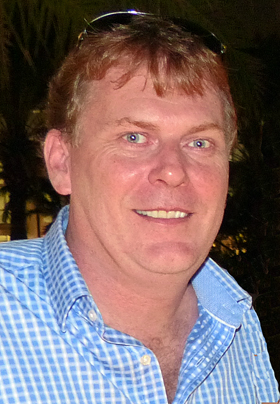
Alan
Dunn
Managing Director, NameCorp.com |
There is no doubt in my mind
that China was the biggest story of 2015 and will
continue to be in 2016. The amount of activity to a
single group of buyers is unprecedented in
this industry and, in many ways, resemble the mid-nineties
for domain name acquisitions. The second most important
story was GoDaddy's acquisition of the Marchex
and MostWantedDomains portfolios. Both of these
events (China and GoDaddy) have accelerated domain name
investing into mainstream media which was a huge step
for the industry overall.
2016 will be a fun
year. I believe we will ultimately see new highs
from Chinese investors (with a couple ups and downs along
the way) and more large acquisitions in the domain
portfolio space. I also think we are due for one or two
companies to disrupt the space. Some will be
innovative (like Uniregistry is doing this with the
marketplace) and others will be financially driven which
may result in higher costs for domainers (consolidation of
drop auctions for example). The industry is maturing now
with corporate money arriving so change is
inevitable at some point. Overall, I believe 2016 will be
an incredible year for the industry as a whole -
and especially for owners of high-quality short domain
names. |
Tracy Fogarty
CEO & Founder, eNaming.com
|

Tracy
Fogarty
CEO & Founder, eNaming.com |
After
a very successful stint with DomainHoldings.com,
broker Tracy Fogarty opened her own shop at eNaming.com
and quickly began posting high dollar sales that turned up
often on our weekly
domain sales charts.
With respect to the most dominant
factor in the domain market last year,
she made it unanimous.
The most
significant event of 2015 was of course China.
We've seen an unprecedented demand for short .com
domains as well as numeric domain names. While
there are a few theories why it happened I've yet to see
one I'm fully comfortable with.
Looking
ahead, eNaming focuses on domain names as utility.
While traders will trade, we're driven by fulfilling
the demand of business owners first. Our main
challenge is to continue to educate the domain buyers. We
believe that for business owners, the correct valuation of
domain names must integrate their business
objectives, budgets, vision, and a plan. Domain names are direct
marketing tools and in the hand of talented marketers
can create and be the catalyst of change, growth, and
profits. |
Tobias
Flaitz
CEO, Sedo.com
Domain Investors
Domain Investors
Domain Investors
While
China dominated the domain buyer, seller, broker landscape, there
was more to see industry wide in 2015 and few were in a
better seat to witness the high altitude view than Sedo CEO
Tobias Flaitz. In addition to having a leading global domain
marketplace (that obviously benefited from China), Sedo is a long
time power in domain monetization and has also taken a major role
in supporting new gTLDs.
|
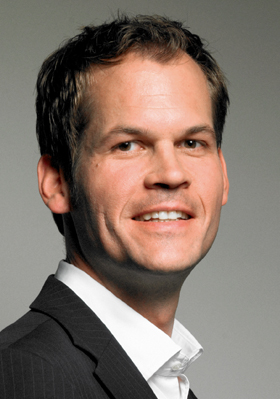
Sedo
CEO Tobias Flaitz |
There
are four visibly significant trends over the course
of the last year:
(1)
The growth of .com domain names has proven that
this is still the most sought after type of domain
with average sales values peaking in the past 12 months
and other data backing its position as the solid king
of TLDs. Established markets as well as growing
markets such as China, India and other Asian
markets have demonstrated a continued upward demand for
.com further supporting .com’s reign and success among
other names.
(2)
China‘s successful market surge was an
anticipated event but it still stunned many in regards to
how quickly it became the number one country globally for
domains purchased by Chinese buyers.
(3)
In general Registries, Registrars as well as marketplaces
like Sedo benefited from a growing demand in
domain names after a challenging interim development in
2014. There is a clear trend towards a potential
renaissance period for domain names which are again being
sought after in conjunction with effective online
marketing. |
|
(4)
New gTLDs finally started to gain traction in 2015
and are not only seeing demand from the domain industry
but there has also been a significant uptake in
awareness outside the domain industry. This has led to
overall interest expanding along with diversifying of the
audience base all guided by marketing activities and
initiatives of new gTLD registries (i.e. in collaboration
with Sedo).
New gTLDs
continue to make an impact even with .com’s steady lead
within the domain name market. 2015 was significant for
investors as well as for end users in utilizing even more
new names that came onto the market. Sedo’s registry
partners like .Club and others such as .Ski are
positive examples of how marketing is essential to
create awareness for the new names. Bigger players like Donuts,
StartingDot as well as those focused on one TLD
alike have benefited from our mutually beneficial
partnerships. Back in 2014, Sedo started a program to
support the registries with and in 2015 we greatly
expanded our efforts by scaling larger and collaborating
at even more events. The Sedo gTLD-topped frozen yogurt
concept captivated the attention of visitors at events
such as SXSW and dmexco where larger groups
of end user and multipliers representing big brands,
startups and marketing and advertising agencies could be
addressed. Continued and additional promotional efforts
like this are crucial in the sustainability of the
new gTLDs.
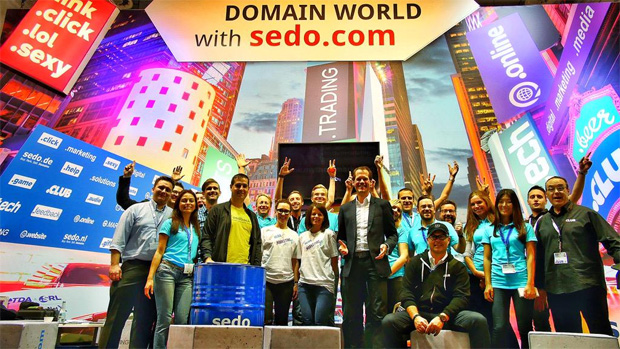
The
Sedo team, led by CEO Tobias Flaitz
(standing at center), along with some of their registry
partners, celebrate a successful 2015 dmexco show
last September in Cologne, Germany.
A
reflection on the past year would not be complete without
the mention of China and their surge in the purchasing of
domain names especially in the latter part of 2015. This
made a dramatic impact on the domain industry and
secondary market sales. Sedo saw a spike of around 43%
of transactions involving buyers and sellers in China.
Demand is being driven because Chinese investors are
looking for investment alternatives such as domains after
downtrends of both the stock and real estate markets.
Numeric and shorter domain names are especially appealing
to these investors and Sedo had many sales pull in upwards
of five and even six figures: Give.com ($500,000), PAX.com
($200,000), 1905.com ($57,000), etc. It should
be noted that these are a sampling of high grossing sales
of short character names and are not all-encompassing of
top sales in this category. This nevertheless was a strong
area for new sales and one we’ll maintain and grow upon
during 2016.
Many
industry news outlets consistently covered the increase
over the past year of BuyNow sales and the trend
toward fixed-price domain names. This pricing
method creates an easy and accessible path to purchase,
potentially converting interest in particular names to
sales quicker than negotiations drawn out over a longer
period. This doesn’t overshadow negotiable or Make
Offer sales as a perfectly viable method for domain
sales. While we’re discussing the accessibility of
domains and service, it bears mentioning the gravitation
of customers towards apps or social networks to access
information. Even with the increase of the use and
presence of these channels very rampant in today’s
world, it is our belief that businesses will not use these
as their primary delivery method for goods and services.
Sedo’s
core business has a long history of success among our
domain parking services and this year was no different.
2015 saw monetization as a continued valuable
revenue source for domain owners and the link of parking
and trading activities supported domain sales across the
board. |
Paul
Nicks
Senior Director, Aftermarket, GoDaddy.com
In
addition to being the world's leading domain registrar GoDaddy
operates a booming domain marketplace. Paul Nicks, their
Senior Director, Aftermarket, never fails to cover every base so
it's not surprising that he is looking at - but also beyond -
China's current fixation on short acronym and numeric domains.
|

Paul
Nicks
Sr. Director, Aftermarket, GoDaddy.com |
2015 in
domains was all about the Chinese market. We saw a
huge uptick in domain investment in the region, which is
something we hadn’t seen before. Chinese investment in
numeric domain names as well as domains with just a few
significant letters skyrocketed last year, and this
looks set to continue. There’s an overall increase in
domain brokering between America and China and the
question on my mind as we head into 2016 is whether or
not Chinese domainers will continue to see domains as a
more stable investment vehicle, and diversify their
investments accordingly (possibly expanding into
keyword-rich English-language words and phrases), given
the current state of the Chinese economy.
This year
at GoDaddy, and across the domain industry more
broadly, we’re really interested in everything mobile.
Given that the domain aftermarket is very time sensitive
and competitive, |
|
it’s essential that
investors are able to participate in auctions from anywhere
at any time, so I think we’ll continue to see domain
investment go increasingly mobile. Last week we announced
The Domain
Investor app, our first mobile app dedicated
specifically to investors, and other domain aftermarkets
are putting out their own mobile apps as well. Overall, I
think domaining will grow in mobile this year, whether
through apps or a responsive, integrated, consolidated
mobile experience to help get domainers off their
desktops. |
Mike
Mann
Domain Investor, Entrepreneur (MikeMann.com),
Founder at DomainMarket.com
We've
heard from leading brokers and executives at top aftermarket
platforms but what do individual domain investors have to say? We
contacted a couple of the best, one who has a foot two
camps. Mike Mann founded and later sold BuyDomains.com
(still one of the top aftermarket platforms) and now runs DomainMarket.com.
He has also been one of the most successful individual domain
investors of all time, resulting in him being the subject of
two DNJournal Cover Stories -
the first in our first year of operation back in 2003
and the
second in 2007. Mann has never been bashful about
saying what he thinks and he again makes it clear what he thinks
about investing in .com vs. the rest of the field.
|

Mike
Mann |
In 2015
Chinese investors went in heavy for short .Com domain
names that met their specific criteria. In general, super
premium .Com domains held their long term value all
around. Those who have invested in alternative gTLDs
(i.e., not .Com), other than the best of the best, have
taken undue risk, given the virtually limitless expanding
gTLD space which continues to dilute its predominantly
valueless assets over and over, while .Com valuations
rise.
For
example, DomainMarket.com has 250,000 of the
world’s best quality and best priced, contextual .Com
domains for immediate sale and transfer, as a long term
safe alternative to the alternatives.
On one hand
folks may believe new domains devalue .Com to some degree,
but in fact that is only true for the ones of questionable
value in the first place. The best .Coms increase in true
value over time, regardless of their sale prices in this
confusing, illiquid market space. .Com will keep rising
due to scarcity, more internet users worldwide,
smarter branding, marketing and domaining experts; and
because the gTLD alternatives can’t distinguish
themselves; |
|
they drive
additional awareness, traffic and value to the
corresponding .Com domains. (Especially if anyone ever
uses the alternatives in commerce, as opposed to just rampant
speculation currently. Right now only a miniscule
percentage of global web sites use the new style domains.)
On average,
the smartest marketing people in the US were hired by the
biggest companies in the US. And every single Fortune
500 company uses a .Com domain, likely many .Com
domains. None are foolish enough to use alternatives that
could confuse their customers, or drive value and traffic
to the corresponding .Com.
Presumably
Chinese knowledge, and worldwide knowledge of branding and
investing experts will expand in 2016, and possibly
cause additional .Com niches to spike in sales
volume and pricing. (likely two word category killers,
which have largely been overlooked so far).
Moreover, I
believe the current global stock market crisis
may drive fresh investors to try alternative assets
like .Com domains; but we also find the overall drain in
wealth to be a negative. Therefore, we believe the
“market crash” is a net neutral to the domain
investing environment.

Mike
Mann speaking at the 2011 T.R.A.F.F.I.C. East conference in
Florida.
There
is no, and never will be any, reason for consumers to risk
the cost or bad branding of alternative domains, except if
they can get one of the very best at a very low cost as a
means of testing only, something like “golf.club”
or “abc.xyz” (which they may still find confuse
people and drive value to GolfClub.com and AbcXyz.com.)
So any way you slice it expect no long term profits for end
user investors and branders in alternative domains except in
rare circumstances. Possibly some of the registries and
registrars themselves may have a hit with short term
launches of the better gTLDs, like pending ones .web,
.blog or .commerce.
But
again, since they all constantly dilute each other but drive
more value to .Com, they will overwhelmingly fail to make
long term profits. Fewer and fewer alternatives will get
registered on average over time, and the majority of those
which are unused in commerce, that were purchased for
speculative purposes, will ultimately not be renewed and
will be deleted over the next few years. Also fewer new
gTLDs will be launched overall as some of the others become
documented failures.
.Com
is, was, and will always be king. Remember this before you
lose your ass. Also only invest in the very best .Com at the
very lowest prices. Every other strategy is too risky for
all but a handful of people in the world who happen to have
a very special trading edge and skill set, plus a lot of
investment capital and tolerance for risk. |
Michael
Castello,
Co-Founder, President & CEO, Castello
Cities Internet Network
Michael
Castello, who, along with his brother David, was
profiled in a 2006 DNJournal.com Cover
Story and the remarkable story behind his $3.1
million sale of Whisky.com in 2014 was told in our
February 2014 Cover
Story. He is one of the world's most
successful domain investor/developers whose development successes
include PalmSprings.com and Nashville.com. Michael's
knack for spotting future trends years before they happen could
qualify him as a futurist as well (his comments on Virtual
Reality and Artificial Intelligence being a couple of current
examples).
|

Michael
Castello |
Without a
doubt, one of the most significant events of 2015, for the
domain name industry, was the Chinese market investing in
domain names including the new extensions. Whether as a
hedge on their markets or strategy to find loopholes around
government sanctions, the Asian market saw greater value
then previous years. I am skeptical on the long term
viability of their investments but a large market could redefine
what has added value within their own culture. In the end it
comes down to people making a profit and if it continues
into 2016, many portfolios will continue to grow in earnest
in size and worth.
NamesCon
was an even greater success than the previous year. That
shows a robust interest in all extensions. But it is
still a market within a market which has had little impact
on a national and global scale. Social trends and mannerisms
in technology will eventually cause a greater need for
people’s livelihood to include and immerse into domain
names and what they offer for future security, business and
advancement.
We have yet to see a dynamic shift from the |
|
public wanting domain names to “needing” them. It’s a
process, but the whole domain space will benefit when that
occurs.
I see 2016
as being a tremulous period. There will be many changes
and those that adapt to those changes could reap millions
if not billions. The new registries could find their
coffers swell depending on the social changes that
may occur. People would like to be spending more time at
home. Issues like security, being home with family, spending
less on commuting and just being in the comfort of one’s
home will be paramount to our lives in the future. This
equates to people finding a channel to make it work. Those
channels are domain names which are already in
everyone’s home through the Internet.
Those that
own premium and hyper domain names could see future
investors viewing their portfolios as treasure. If investors
spend millions on a Picasso or Rembrandt as an
investment why not a portfolio of highly desirable domain
names?
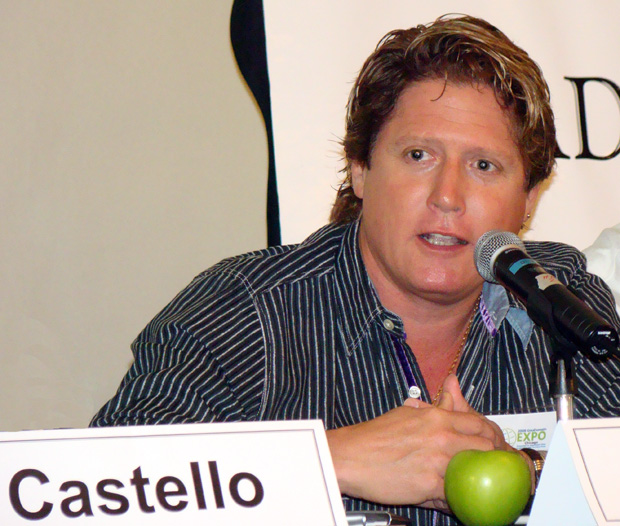
Michael
Castello speaking at the 2008 GeoDomain Expo in Chicago.
Virtual
reality will play an ever growing part of society. Words
that have meaning and are conceptual will be more in demand.
I cannot emphasis enough how important VR will be in our
future. I believe we are at the precipice of some very
dynamic changes in society.
AI will
make for an interesting play in the next five years. We will
see more movement into word commands for our devices and
droids. Single word brands will have greater uses for these
new technologies. Those who control them, will have greater
ability to define them and how they are used. They are Power
Words.
On a note
of caution regarding artificial intelligence, I would
suggest that those connected to the Internet, use some
disinformation to counter this intelligence from analyzing
and matching our thought patterns. Computers and data can be
a great service when we are in control, but will be used
more to direct and move us. Don’t be a cog in the wheel.
Paul
Stahura
Co-Founder & CEO, Donuts
Inc.
Domain Investors
Domain Investors
Domain Investors
|

Paul
Stahura
Co-Founder & CEO, Donuts Inc. |
Like
Michael Castello above, Paul Stahura, the
Co-Founder and CEO of the largest new gTLD
registry operator, Donuts Inc., also thinks
he has a good idea of what the future holds. Paul
sees an extremely bright future for new domain
extensions - so much so that he has bet a good
chunk of his personal fortune on it (as detailed in
our compelling July
2015 Cover Story profiling the prolific
industry veteran).
The
most significant trend in 2015 was the industry's
effort to ramp up awareness of new gTLDs.
Even as registrations in new gTLDs approached
and then surpassed the 10 million mark, a
significant milestone, it remained clear that
end-user awareness could use improvement. Donuts,
and other companies, invested heavily in
consumer marketing, which has markedly improved in
2015.
Donuts
is very pleased with growth in the new gTLD
space going into 2016. I see consolidation in
the industry as a trend in 2016 as companies seek to
solidify their holdings and the industry finds its
way to a healthy equilibrium. I also see an
increased effort on the part of industry leaders to
self-regulate and disinvite regulation that would be
considered invasive. |
Lori
Anne Wardi
VP, Registry Services, Neustar
Domain Investors
Domain Investors
Domain Investors
Industry
veteran Lori Anne Wardi is well-known for helping
lead the widely hailed marketing campaign that successfully
rebranded .CO as a globally oriented Top Level
Domain. The .CO registry was later acquired by Neustar
who inherited some great talent, like Lori Anne, along with
a profitable TLD. Like Paul Stahura above, Lori Anne is a
firm believer in a bright future for new TLDs.
|

Lori
Anne Wardi
VP, Registry Services, Neustar |
In
2015 we saw new Top-Level Domains truly
establish themselves as a legitimate and growing
industry force. The results of the recent
auction at NamesCon are a testament to this
fact.
My
prediction is that 2016 will be the year of the .brands.
Our team is seeing major .brand applicants
mobilizing their resources in preparation to launch
their TLD assets in alignment with their broader
digital marketing strategies.
While
2015 was dominated by new generic names, 2016 will
be characterized by the launch of major .brand
players. I predict we’ll see them start to
leverage their new TLDs as a point of
differentiation across their consumer channels and
this will result in a rise in new TLD awareness,
as consumers start interacting with these companies
through .brand messaging in marketing and other
customer focused communications. |
|
The
.brand digital pioneers that launched in 2015 –
like Abbott, Sony and BNP Paribas
– have made the business case and shown us that
customers will embrace innovation and that they do
indeed perform well in search.
Given
this, 2016 will be about the mainstream emergence of
digital superbrands for those that seek to
harness the power of this revolutionary digital
asset. Take a look at www.nic.fox
for just a taste of things to come.
David
Warmuz
President, Trellian.com,
parent company of Above.com
With
so much talk about the impact of China of domain
sales, developments in another key sector of the
industry, domain monetization, have escaped a
lot of people's notice. So we connected with a
couple of the key players in the space for comments
on a service that large portfolio owners still rely
on for a steady revenue stream. David Warmuz
is the President at Trellian.com, the parent
company of popular domain monetization service Above.com.
|
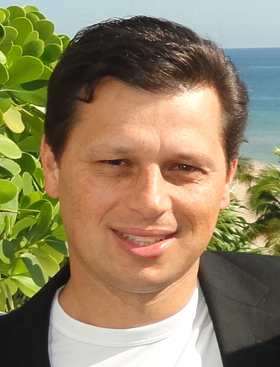
David
Warmuz
President, Trellian.com (Above.com) |
I’d like to
spend a moment talking about the ongoing
trend involving the consolidation of
parking companies and registrars. As
these mergers and consolidations continue,
domain portfolio owners are left with fewer
service provider options. The ultimate
question is whether the larger, consolidated
companies can provide the level of service
and innovation normally associated with
smaller companies.
For the parking
companies, registrars and brokerages in the
domain industry, the challenge is to find a
way to differentiate themselves from
one another in order to attract and retain
clients. As our industry matures and as
consolidations continue in 2016 and beyond,
domain investors are likely to look at these
services as commodities, with price
acting as the primary differentiator. From
the service provider’s perspective,
competing on price is not a good long-term
business model. So their challenge is to innovate
in order to differentiate.
For domain
investors, the heavy focus in 2016 will
continue to be on selling and flipping. So
their challenge is finding ways to reduce
the |
|
amount of time
spent managing other tasks such as the
monetization and renewal decision-making
processes for their domains. The trick is to
reduce the time and effort on these tasks,
but not at the expense of lost revenue or
higher costs.
This domain
investor challenge represents a big
opportunity for us at Above.com. Our
free monetization, registrar and marketplace
tools and services not only help domain
investors save time managing a wide
range of tasks, but they also deliver
increases in revenue and a variety of ways
to save on costs. As a result, we’re in
the perfect position to enable domain
investors to focus more and more on
buying and selling, without needing to
worry about lost revenue and increasing
costs. We’re the complete, simplified,
high-performance solution for their
monetization, registrar and marketplace
needs.
Ash
Rahimi
CEO, RookMedia
RookMedia
CEO Ash Rahimi is a major player in the
domain monetization space. After tenures at Sedo
and NameDrive, Ash has helped grow
RookMedia into a top tier name in this
sector. Rook's acquisitions include DomainSponsor,
a company that was a key pioneer in the
domain monetization business.
|
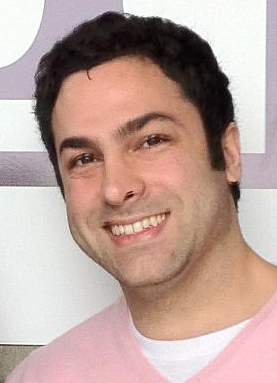
Ash
Rahimi
CEO, RookMedia.net |
In
the parking world, the most
significant trend in 2015 continued
to be the rise of mobile. If
I think back to even 3 years ago,
both advertisers and ad networks did
not know how to treat mobile. Are
phones and tablets simply a smaller
sized desktop screen that should get
the same type of ads we’re all
used to seeing? Or is it better to
invest in creating a unique
experience on these new devices?
You’d routinely click on a Google
ad on your phone and be led to a
horribly misshapen and formatted
website. That, of course, led to big
conversion issues for advertisers.
As 2015
progressed, we saw great efforts
both on the advertiser and ad
network sides to create unique,
useful and well-converting
experiences for users. That in turn
led to more advertisers raising
their bids in the mobile space
and ultimately to higher CPCs. We
still have a ways to go before we
see desktop and mobile CPC parity,
but we’re getting closer every
quarter.
From an industry perspective, we saw
an increased focus on domain sales
as a pretty dominant theme in 2015.
At Rook, we’re still more in
“buy" mode, as we continue
believe |
|
that (especially mobile) traffic is
still undervalued, and that
better days are on the horizon for
domain monetization. With all the
great platforms out there, it’s
never been easier to sell at scale,
and I think we’ll see bigger sales
in 2016.
Mobile
will continue to be a focus in 2016
for both domain parking and also the
online advertising space in general.
While the share of mobile vs.
desktop continues to shift steadily
in mobile’s favor in more
developed countries, we see that
developing countries that are
rapidly expanding their online usage
rate already tilt heavily towards
mobile from the beginning.
The
onus will really be on advertisers
to ensure that they deliver an
engaging mobile experience that
leverages the unique properties of
phones. Google has done a great job
with investing in advertiser
education, and these days most ads
we see are mobile responsive. On the
monetization side we’ll be seeing
new and interesting ad formats
that will increase user engagement.
Especially when looking at how
traditional search has struggled to
figure out mobile these past couple
of years, I feel very confident in
the domain channel’s readiness to
handle the mobile shift well. The
flexibility we have in delivering
what is essentially a full page
online advertisement allows us to
work with any advertiser or ad
network. Domains have always been
kind of a Swiss Army Knife when it
comes to online advertising, and
that will continue to our benefit in
2016.
Deepak
Daftari
CEO, eSiksha.com
China
has had such an enormous impact on
the domain industry this year that
we wondered if some other
"sleeping giant" might
soon awake and create another huge
updraft for domain owners. The most
likely candidate would appear to be India
and we got a first hand look at the
rapid growth happening there when we
went to Bangalore last August
to cover the 2nd annual DomainX
conference. Many in India regard
eSiksha.com CEO Deepak Daftari
as the "father" of the
country's domain investment industry
so, with an eye on the future, we
couldn't think of anyone better to
close this year's State of the
Industry report. He gave us his take
on China, then a forecast for the
domain business in his country.
|
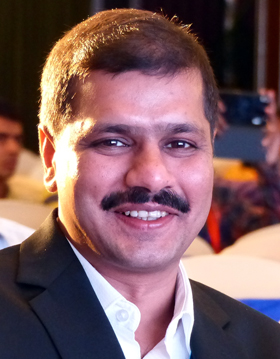
Deepak
Daftari
CEO, eSiksha.com
|
The
single biggest trend that
affected almost everyone in
the domaining industry would
be the rise of the Chinese
domain Investor and the rise
in prices of domains with
the least preferred
characters. Overnight
domains considered a
liability and burden on the
domain portfolio, by the
western investment
philosophy, were
investor’s gold.
The theory of least wanted
and most wanted characters
was turned on its head and
domainers went scouring
theirs and others portfolios
for these kinds of
names.
Chinese
Premium Names (also known as
chips), other short
domain names like 2N / 3N /
4N / 5N.com’s, LL / LLL /
LLLL.com’s, One word
Generic .com’s, LL / LLL /
LLLL.net’s, .CC names,
.Top names, .Wang names and
many other TLDs and
categories of domains went
up in prices and out of the
reach of a new domainer
staring today.
Some
domainers who had not
anticipated such a meteoric
rise in prices of such
domains, sold them early on
and too cheap while
those who had the foresight
to hold on to them were well
rewarded. But it was not
a one way ride, with its
ups and downs and some
investors even lost money
trying to ride the wave
without knowing when to get
off.
|
|
Following
the dizzy heights reached by
certain categories of names,
domainers are now
speculating whether the ride
will continue in the Chinese
Market or if a blood bath
in the secondary market is
imminent. There has been so
much speculation in the
market in such a short
period of time that
domainers have been coming
up with multiple theories
for the times to come. In my
personal opinion the ride
is going to continue for
some more time before we
see any major downside on
some of the domain asset
classes.
Among
the other side of domaining
I expect to see a lot of consolidation
happening by way of some of
the bigger players buying
out smaller portfolios,
consolidation in the new
gTLD space, parking income
remaining static or go down
a bit more for the average
domainer, more consolidation
in the brokerage space and rise
of the Chinese and Indian domaining
industry.
|
In
my opinion, the
Indian domain
industry will see
one of its biggest
rises in the next
2-3 years and
people who will have
missed the boat will
be caught surprised.
The rise in the
spending power of
the middle class
means more money in
the hands of the
common man and more
avenues to invest
and park this money.
Its just a matter
of time that the
common man and the
bigger industry
players start
realizing the value
of the good domain
name and start
paying market prices
for such domains.
Just as it happened
in the case of
Chinese domain
names, those
companies and gTLD
operators neglecting
this rising category
of spenders will be
surprised in a few
years time and sorry
for the missed
opportunity.
With
more and more
conference happening
in Europe and
Asia like DomainX,
DomainFest Hong
Kong, Domaining
Europe etc, the |

India
image from
Bigstock |
|
awareness
of domaining as a
viable and
sustainable revenue
stream is gaining
ground and
attracting more
young talent to
explore and try to
gain a foothold.
|
Players
like GoDaddy and Verisign
who noticed this trend early
on and started focusing on
these markets are already reaping
the rewards and others
are watching very closely
before deciding on their
entry strategy for these two
markets. |
|
|
|
|
|





